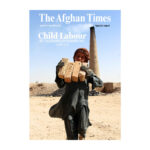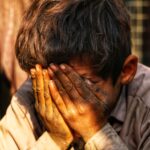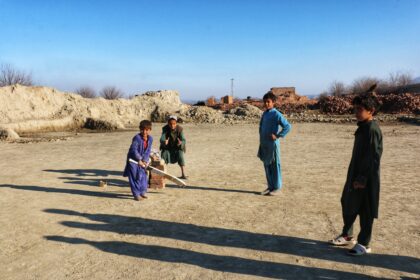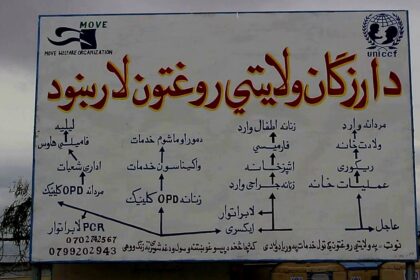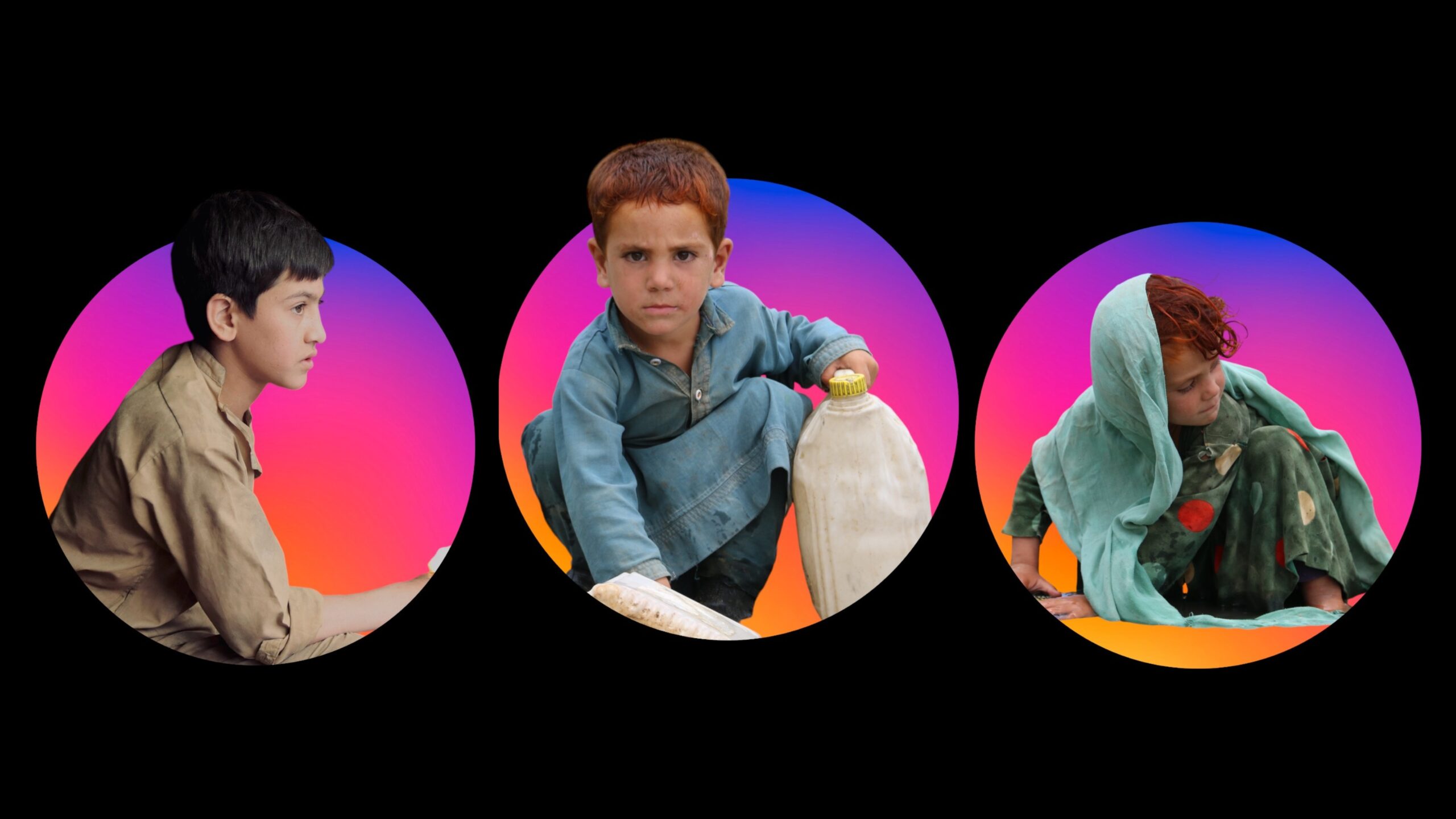At the edge of a blistered brick kiln, 11-year-old Ahmad lifts a block of clay onto a wheelbarrow. His hands are caked in dust. A few hundred metres away, under the same sun, another boy shouts with glee as he strikes a cricket ball across a field of sand. One is working. The other is playing.
This is the story of Afghanistan’s children—divided not just by chance, but by the crushing weight of labour, poverty, and politics.
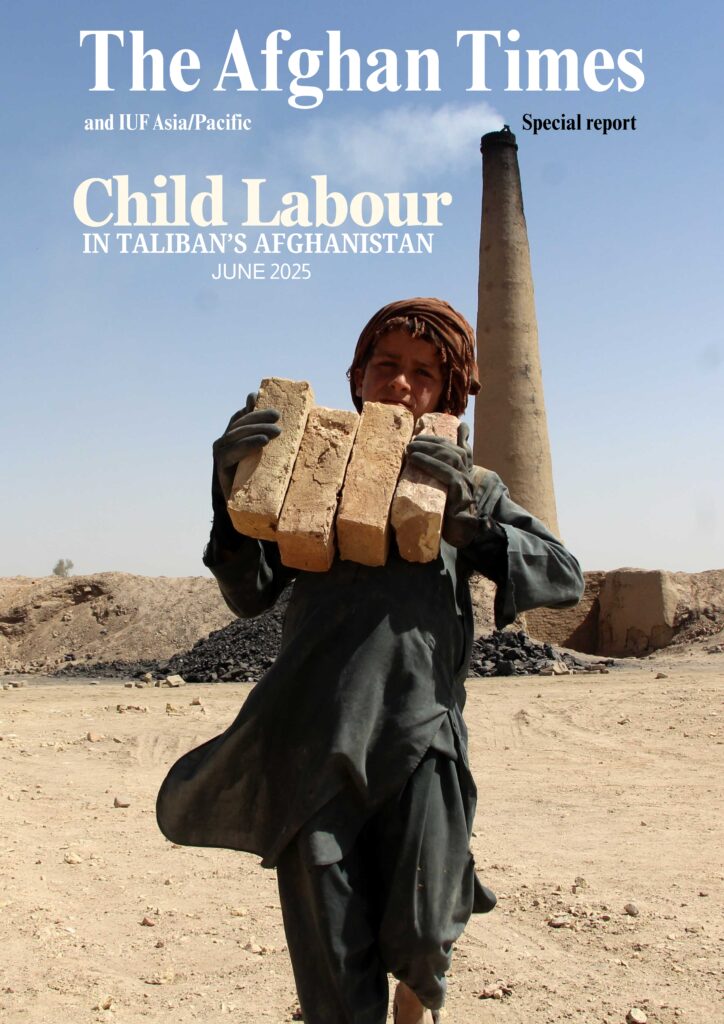
The Afghan Times, and IUF Asia/Pacific, released a special print report: “Child Labour in Taliban’s Afghanistan.” It documents the lived experiences of working children in fields, kilns, garages, and city streets—children who once dreamed of school and sport, but are now trapped in survival.
Their voices are powerful. Their stories, painful. But among them is a question we must all answer: What if they had been allowed to play?
A Nation Where Labour Begins Before Literacy
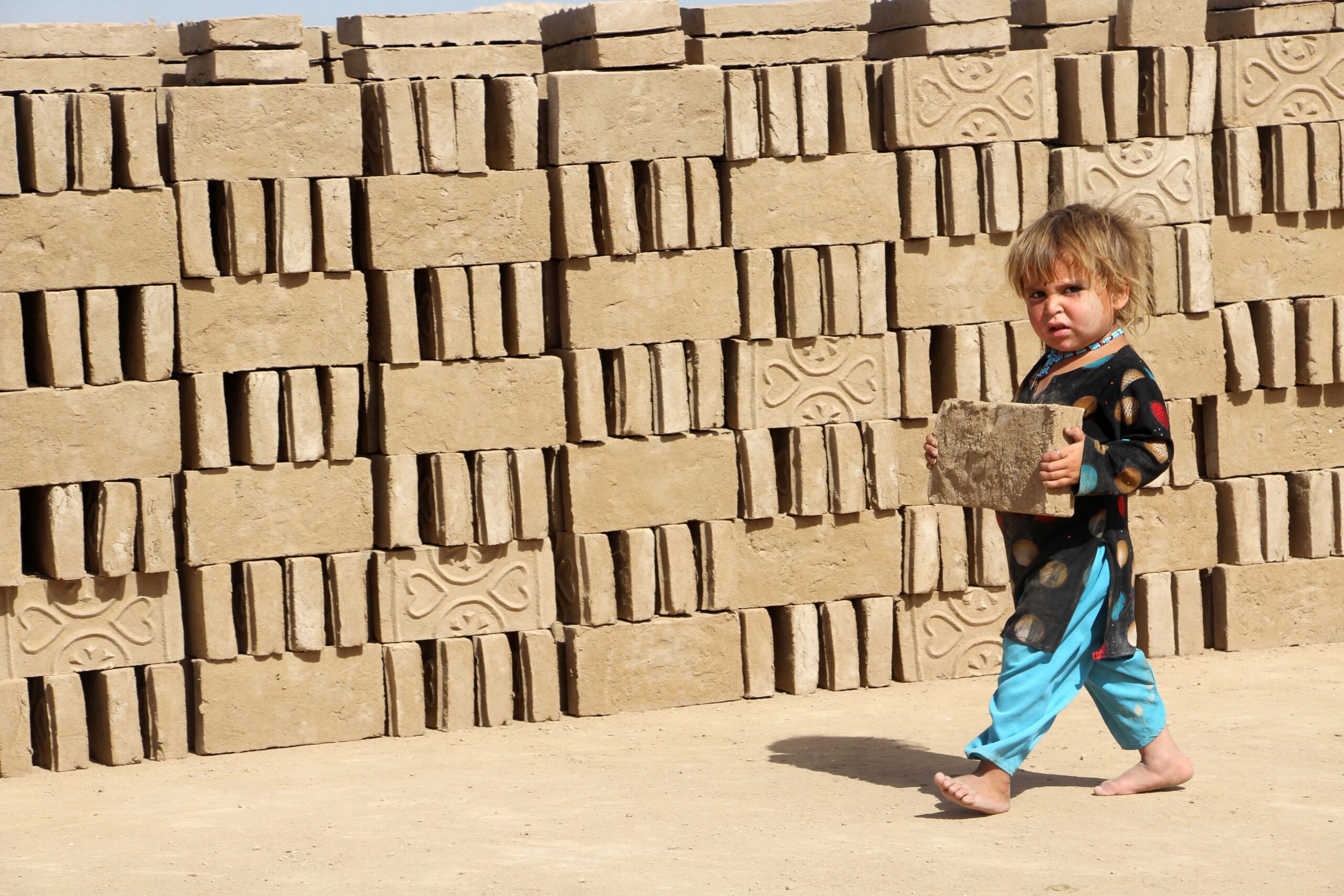
Since the Taliban’s return to power in August 2021, Afghanistan has become one of the most dangerous places to be a child.
More than 19% of children are now involved in labour, according to the UN. Many perform hazardous work: brickmaking, construction, mining, domestic service, or selling food in crowded markets. The exclusion of women from the workforce and the ban on girls’ education have deepened the crisis—forcing boys and girls into adult responsibilities before they can read or write.
As The Afghan Times report reveals, the denial of basic human rights—education, safety, play—has become institutionalized. And yet, in these same spaces, sport continues to appear like a ghost of childhood. A ball kicked between breaks. A plastic bat shared at sundown. A cricket match on a dirt road where textbooks should be.
“We Used to Read Stories. Now We Make Bricks.”
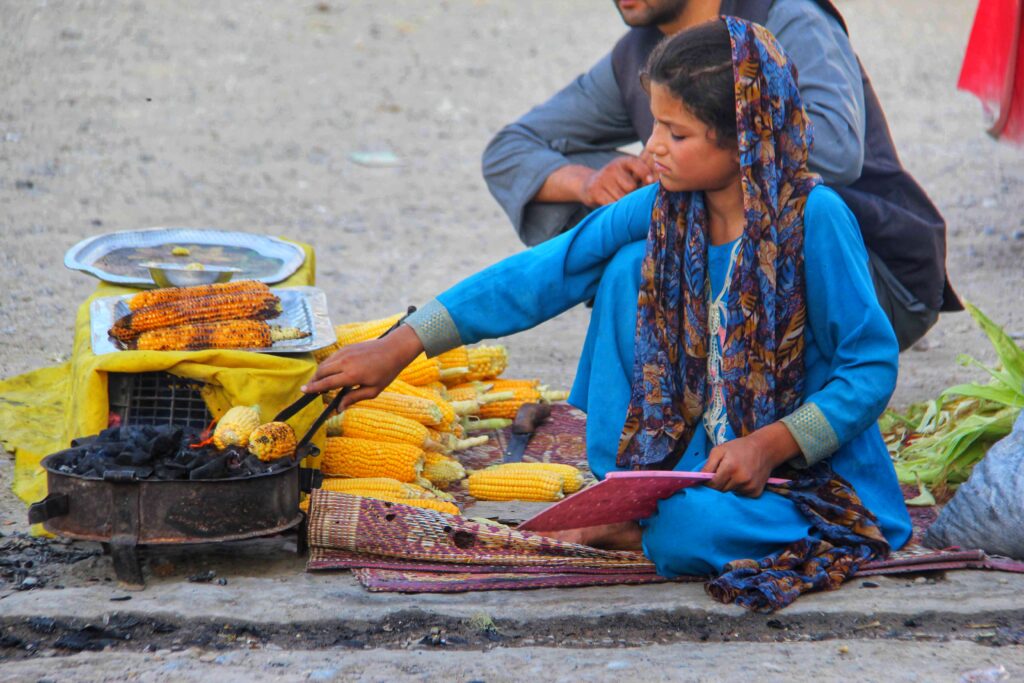
You meet Bilal and Ilyas, aged 7 and 9, working alongside their father in Kandahar’s kilns. “We start before sunrise,” Ilyas says. “The bricks burn our hands, but we need money for bread.” His brother adds, “I used to go to school. I remember writing my name.”
Then there’s Zahra, age 11, who roasts corn on the roadside. She stopped school after the Taliban banned girls beyond sixth grade. “I want to go back, but first we need to eat,” she says.
Wali, 12, works as a mechanic. “If I don’t work, we don’t eat,” he tells us, hammering steel with hands that should hold a cricket bat, not a wrench.
These stories, pulled from interviews across provinces of Afghanistan, illustrate a national emergency. But in the margins—between kilns and markets—children still find ways to run, to laugh, to play.
Sport: Not a Distraction, a Defense
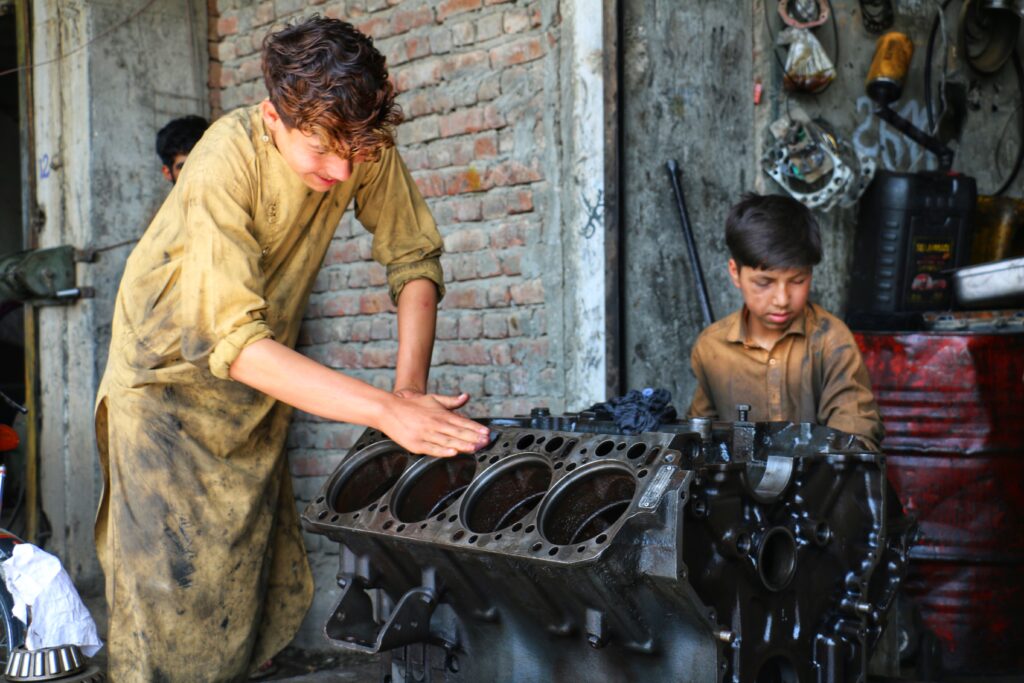
In Herat, a small football club trains in a courtyard surrounded by concrete. The players—mostly working boys—laugh as they pass the ball, each goal greeted like a holiday. At day’s end, they take home small food parcels—an incentive from the coach to keep them in school and off the streets.
In a Kabul displacement camp, a former schoolteacher-turned-coach leads a cricket session for orphaned boys. One of them, eight-year-old Omar, bowls with a bottle cap. “My father played cricket too,” he says. “He taught me this grip.”
Elsewhere, far from cameras, a group of teenage girls train secretly in an abandoned hall, volleying a ball under the watchful eye of a whispering coach. They cannot be seen. But they refuse to disappear.
These are not just games. They are acts of resistance. They are lifelines.
What Needs to Be Done — Seen Through Scenes
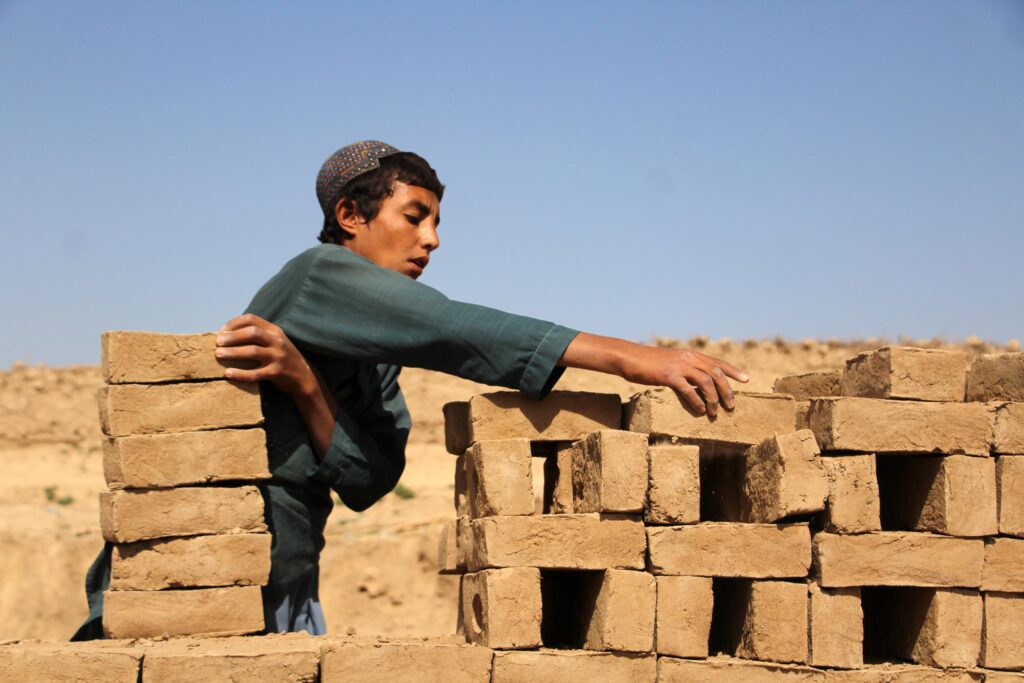
In a dusty village square, a donated football sits unused—there’s no safe place to play. A young girl watches it from across the road, clutching a water container.
In an IDP camp, a child clutches a cricket bat fashioned from broken wood. He plays until dark, then helps his mother collect firewood.
In a refugee shelter, two teenagers coach younger kids through a warm-up routine—both are former child labourers, now mentors.
In a hidden courtyard, girls in hijab practice penalty kicks between washing lines. They cheer quietly. Their laughter is hushed—but present.
These scenes reveal what needs to be done:
- Not policies on paper, but fields that are safe
- Not slogans, but bats, balls, and boots in children’s hands
- Not aid stuck in bureaucracy, but mobile sport vans reaching the unreachable
- Not permission—but protection for girls who play where they’re told not to
Where Are the Federations?
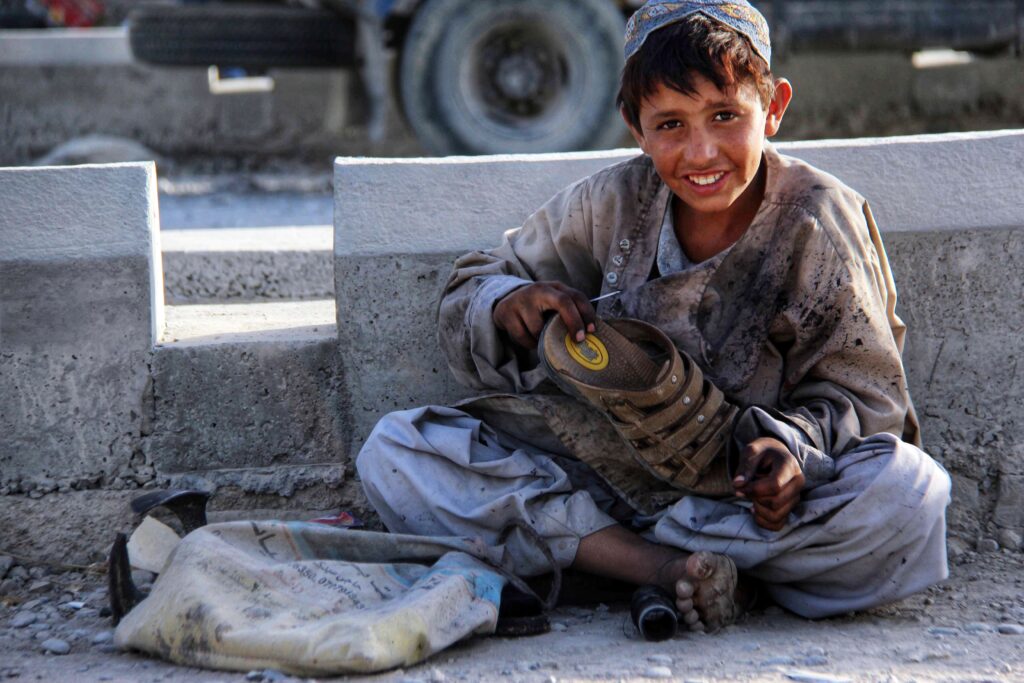
A child plays barefoot under an ICC banner hanging from a shop window. Another dribbles beside a crumbling poster of the Olympic rings.
Meanwhile, the offices of the world’s sporting bodies remain quiet.
FIFA. ICC. IOC. AFC. Olympic committees. Cricket boards.
Where are you?
Afghanistan’s children don’t need press releases. They need solidarity, funding, access, and protection.
Let sport be a bridge—not a brand.
The Role of Sports Journalism
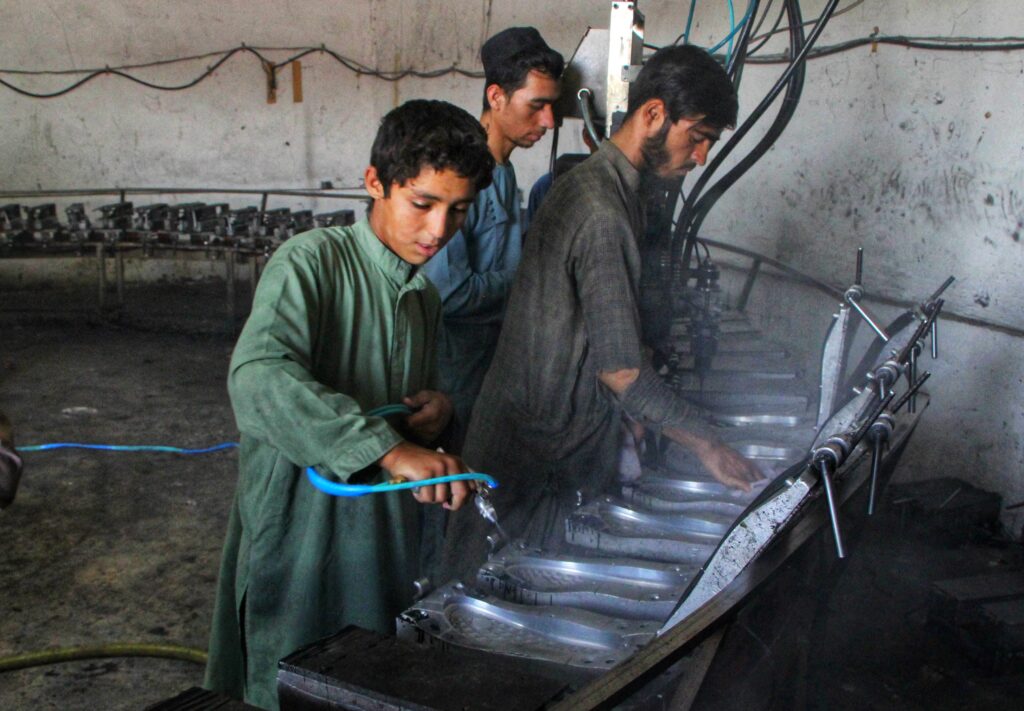
On a cracked phone screen, a boy in a bakery scrolls through clips of the Afghan national team. “One day,” he says, “I’ll play like them.” His apron is too big; his dream, even bigger.
We, as sports journalists, must cover that dream. Not just the game, but the ground it grows from.
We must be there—in camps, in kilns, in classrooms that barely stand—to write the stories that no one else will.
At The Afghan Times, we document these lives not for pity, but for change. And the next story we tell must not begin with labour—but with play.
A Final Word
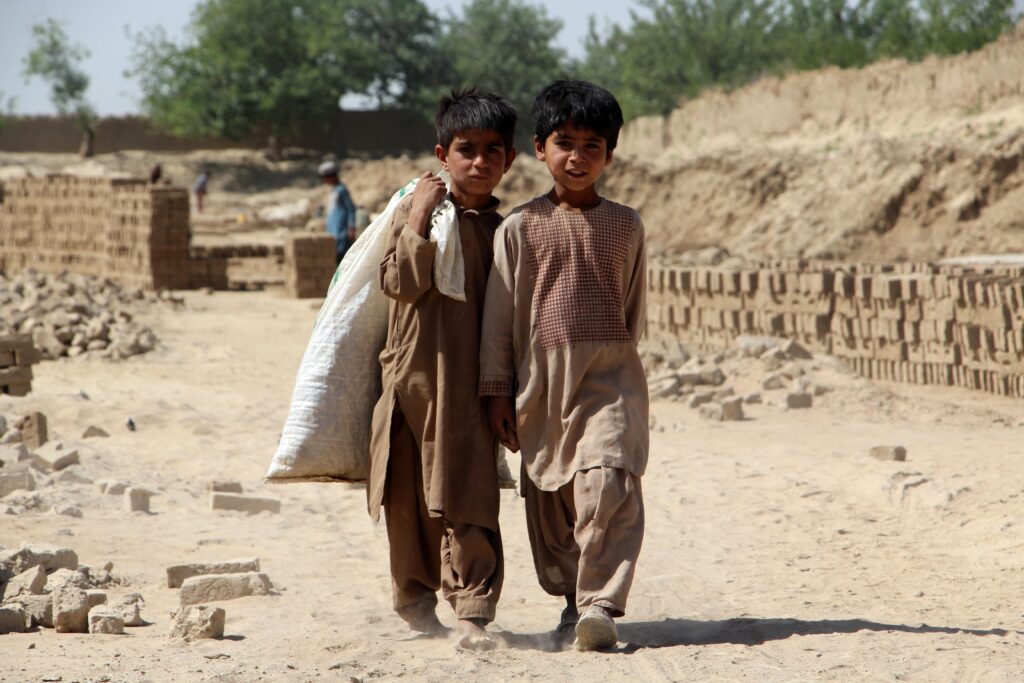
As dusk settles over a Kandahar kiln, two boys walk home, their shirts stiff with sweat and dust. A plastic ball rolls by. One boy stops. Watches.
He doesn’t join the game. He turns, and keeps walking.
Let’s imagine what could happen if he were allowed to stop. If he could play, just once, like a child should.
Let us build a world where Afghan children carry bats, not bricks. Let them dream. Let them play.




